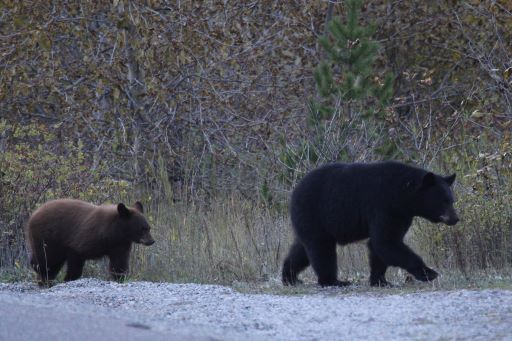Released on July 9, 2020
With the summer season now upon us, the Ministry of Environment is reminding residents to be bear aware.
Saskatchewan has a healthy black bear population, so it is not unusual to see bears in the wild at this time of year as they establish new territory. They are looking for food and are attracted to new scents.
Bears have been known to wander through communities and campgrounds, so proper food storage, cooking methods and garbage handling are essential for safe camping in bear country. Bears are ruled by their stomachs and are intelligent animals. If they cannot find food, they will leave the area.
Bears that have been fed lose their natural fear of humans. When bears start to associate their food with humans, they become a nuisance and a public safety concern.

The ministry encourages everyone to be bear aware by removing bear attractants in their area. This will help reduce the number of bears that have to be euthanized or relocated each year. When you don't take precautions with things that attract bears, such as household waste, you create a safety risk for yourself, your community and the bears.
Here is what you can do:
- Store garbage in a secure building or buy a bear-resistant container. Only put the bin out on the morning of collection.
- Avoid leaving pet food accessible to wildlife.
- Only use bird feeders in the winter when bears are hibernating and natural bird food is limited.
- Properly clean and store barbeque grills after each use.
If a bear is repeatedly doing damage in your community, or you have an aggressive encounter with a bear, contact your local Ministry of Environment office or call the Turn in Poachers and Polluters (TIPP) line at 1-800-667-7561 or from your SaskTel cell phone at #5555.
Additional information about bear safety is available at www.saskatchewan.ca.
-30-
For more information, contact:
Jamie Gibson
Environment
Regina
Phone: 306-519-9290
Email: jamie.gibson@gov.sk.ca

